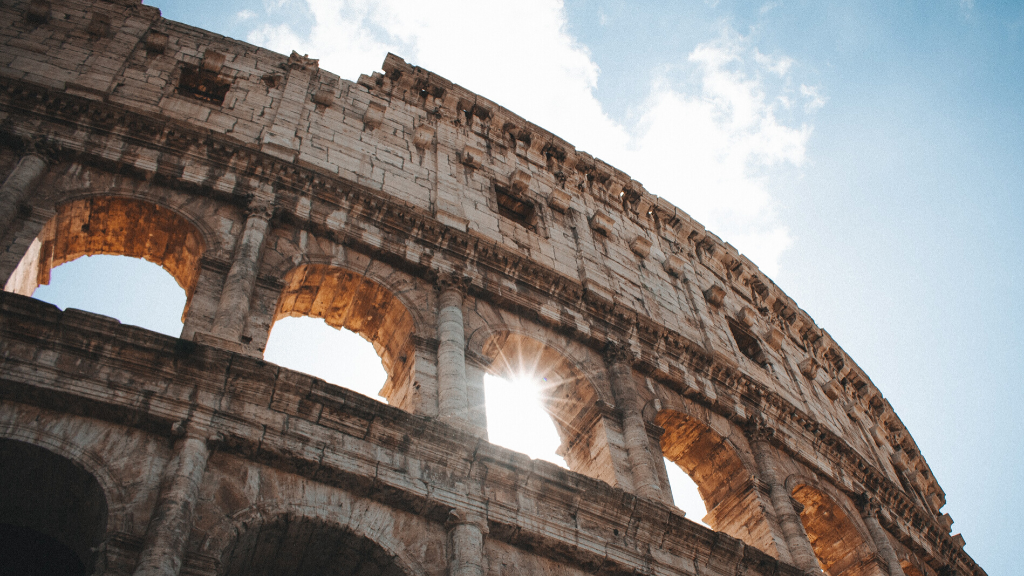Blog: Ancient Guidance for Our Contemporary Crisis By Dr. Howard Baker

We hear the words “unprecedented,” “novel,” and “once in a lifetime” to describe our current experience of the coronavirus pandemic. Those descriptors ring true to most of us who have lived in a culture of health, affluence, and security, all of which have now been threatened by an unseen worldwide enemy. Despite our intuitive sense of the uniqueness of our hardships, the Church has endured many such crises in her glorious history. From that rich heritage, I want to pluck one remarkable leader from the past who speaks articulately into our present challenges.
He is a man who has become known as Gregory the Great. I have often wondered how one is awarded the title “Great” following their name, not that it would cross anyone’s mind to introduce me as “Howard the Great”—more likely, “Howard the Little” or “Howard Who?” Gregory’s title was well deserved. He assumed the pastoral leadership of the western half of the worldwide church in 590 in the midst of a crumbled Roman Empire suffering from wars, plague, and famine. Gregory was first and foremost a man of prayer who had to be physically dragged out of his quiet life of solitude into leadership. Maintaining a heart of prayer and devotion in the midst of an incredibly demanding outer life was the core of his greatness.
Here are some of the ways that Gregory responded to the crises of his time marked by war, plague, floods, and famine:
- From an affluent family, he sold his seven houses and committed himself to a life of simplicity.
- Led prayer walks through the seven provinces of Rome.
- Actively engaged in the practical matters of managing supplies, commanding troops, and negotiating with hostile invaders.
- Averted the destruction of Rome by achieving a peaceful settlement with the Lombard king on the steps of St. Peter’s.
- Emptied the church treasury and sold church lands to care for the needs of the poor.
- After two years of leadership he wrote, “I am being smashed by many waves of affairs and afflicted by a life of tumults, so that I may rightly say: I am come into deep waters where the floods overflow me” [Ps. 69:2].
- At that point he began to rethink his vocation of spiritual leadership and wrote his famous book Pastoral Rule, which was been the classic text for pastoral leadership ever since.
- In his book, Gregory concluded that the two modes of life were not as mutually exclusive as he and the church had taught. He concluded that each strengthens the other in a never-ending cycle: the contemplative life equipping us for the active life, and the active life grounding us in acts of love to our neighbors, to keep us from floating off into spiritual pride and irrelevance.
- Writing to pastors, Gregory insisted they must live an integrated life, one that combines both action and contemplation. If we want to know why, we need only to look at the life of Jesus: he ate and drank with sinners, performed miracles of healing, and fed the multitudes. But he often withdrew into lonely places to pray.
- To Gregory, the lesson was clear: service and prayer are the two essential sides of a redemptive and productive ministry. By living an active life, full of works of neighbor-love; expressing the virtues of faith, hope, and charity; growing in the fruit of the Spirit, one arrives at more intense and joyful contemplation.
There is much each of us can take from Gregory’s example and thought. It remains for us to listen to the Spirit’s direction for its meaning for our lives.
Gregory did offer some specific instruction that is applicable to all followers of Jesus who desire this integrated life of prayer and action, contemplation and mission. Here are a few of his more practical suggestions:
- Read and study Scripture.
- Cultivate humility and other virtues.
- Step away from your busyness at times, withdrawing from exterior distractions into interior contemplation. This was always the most important spiritual discipline for Gregory. You must “turn away from the distractions of knowing about things to the serious, even frightening, task of reflection on the inner self.”
Gregory insisted that we foster and practice discernment. In the ancient world, this and other spiritual virtues belonged almost exclusively to the monk, nun, and priest. But Gregory believed any person could practice spiritual discernment. Gregory believed that a key ingredient in developing discernment and to hear clearly and directly from God is suffering.
Certainly, Gregory’s wisdom is relevant for Jesus’ followers today as we navigate through these times of difficulty and hardship, if not outright suffering. I listen to and for God in the midst of my own personal experience and in the suffering around me of those who have lost loved ones, jobs, health, or a sense of security and belonging. God is with us, for us, and speaking to us in these strange days. Listen…and learn.
